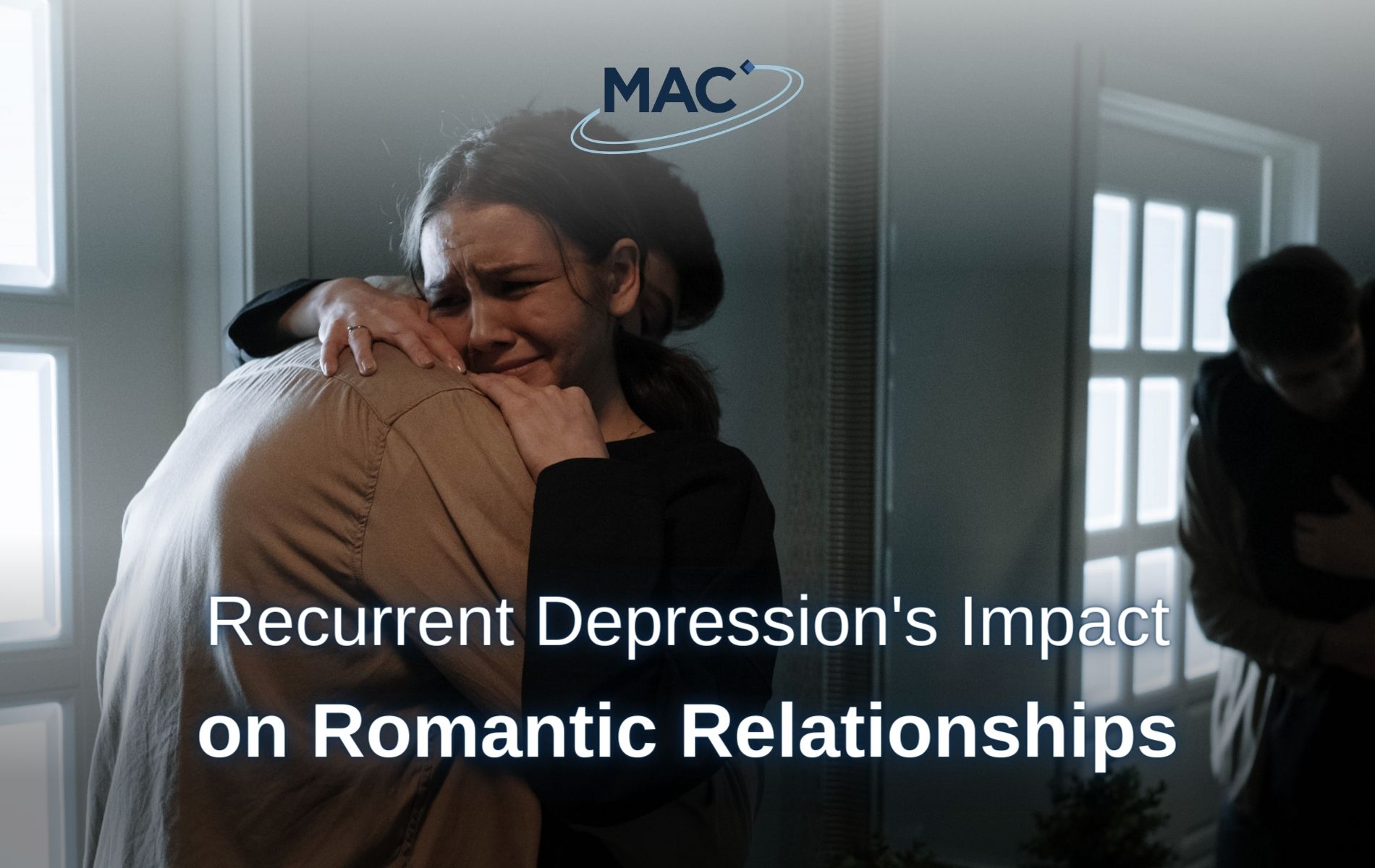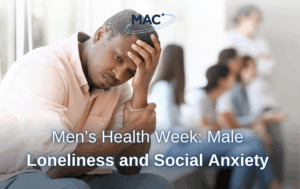During this time of the year, there is a heavy focus on romance. For many couples, however, there exists a formidable challenge that often goes unspoken: recurrent depression. This struggle doesn’t just affect the individual living with the condition, it can also cast a shadow over the dynamics of their relationship, leaving trails of uncertainty, isolation, and frustration in its wake.
What is Recurrent Depression?
Depression, sometimes referred to as Major Depressive Disorder (MDD), is when a person experiences intense and overwhelming feelings of sadness and hopelessness. Around 1 in 6 adults in the UK stated they have experienced moderate to severe depressive symptoms1.
Recurrent depression, however, is when someone has repeated episodes of depression that come and go over time. For those recovering from depression, there is a high chance that they will relapse, slipping back into their depressive state; medics estimate at least half of patients with depression will experience another episode2, making the chances of developing recurrent depression a stark reality.
How does Recurrent Depression Impact Relationships?
One of the most significant ways recurrent depression impacts relationships is through its effect on mood regulation. The ebbs and flows of depressive episodes can create a rollercoaster of emotions, causing the individual to alternate between detachment, despondency, irritability, and agitation, which could leave their partner bewildered or on edge, especially if they do not fully understand the condition.
With each recurrence of their depressive symptoms, the familiar sense of helplessness and despair returns for their partners, eventually leading to a strain on the relationship.
Furthermore, the unpredictability of recurrent depression can disrupt the ability to communicate within the relationship. Attempts to express love and support may be met with resistance or indifference, as the individual struggles to articulate their complex emotions. Studies have shown that people with elevated depressive symptoms have difficulty in interpersonal communication3. Regardless of intention, efforts to give space and autonomy may be perceived as abandonment, deepening feelings of isolation and alienation.
How to Support Someone with Recurrent Depression
Support is crucial in any romantic relationship; the Office for National Statistics (ONS) found that almost 87% of adults said they could rely on loved ones if they had a mental health problem, and this greatly boosts a sense of wellbeing4.
In the face of the challenges that recurrent depression brings, it’s essential for couples navigating recurrent depression to cultivate empathy, patience, and open communication. Establishing clear boundaries and expectations during periods of stability can provide a structured approach to navigating the return of symptoms. Encouraging the individual to also seek professional help, whether through therapy, medication, or support groups, can also provide valuable tools and resources for managing their condition.
Furthermore, it’s crucial for both partners to prioritise self-care and resilience, recognising that their own wellbeing is intrinsically linked to the health of the relationship. Engaging in activities that bring joy and fulfilment, maintaining a strong support network, and practicing mindfulness and stress-reduction techniques can all help bolster emotional resilience in the face of recurrent depression.
Treatments for Recurrent Depression
If you or a loved one is living with recurrent depression, did you know that MAC Clinical Research is currently seeking patients that have recurrent depression who would like to take part in a new study to evaluate the safety and efficacy of a potential new treatment.
The trial is running at MAC’s clinics in Merseyside, West Yorkshire, South Staffordshire, Lancashire, and Greater Manchester.
If eligible, you may receive up to £3263 for taking part in this study plus reasonable travel expenses.
For more information on how you can get involved, visit MAC’s Recurrent Depression Research page.
1 Office for National Statistics – Cost of living and depression in adults, Great Britain: 29 September to 23 October 2022
2 Clinical Synthesis – Consequences of Recurrence of Major Depressive Disorder: Is Stopping Effective Antidepressant Medications Ever Safe?
3 Cognition and Emotion – Influence of depressive symptoms on speech perception in adverse listening conditions
4 Office for National Statistics – Findings from the National Well-being Debate






